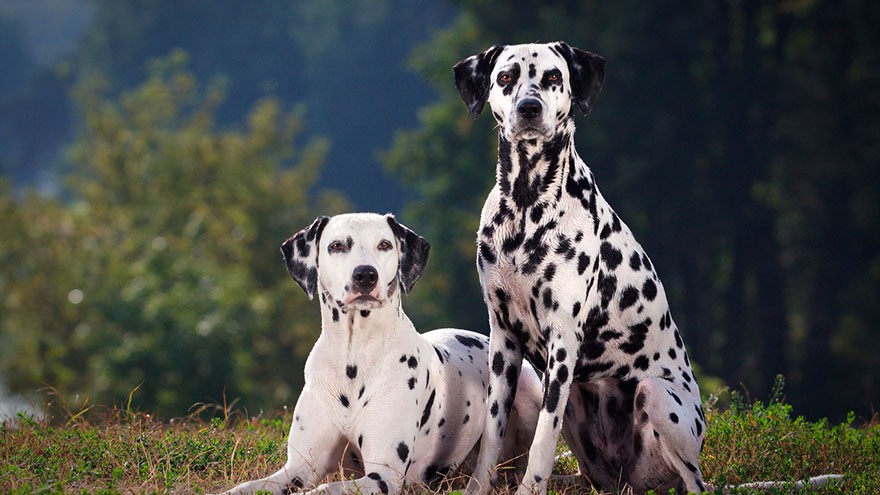Dalmatian Health Guide
Your new Dalmatian should remain a lean, sturdy dog for 10 to 12 years with the right diet and plenty of exercise.
The breed was originally a working dog, and was often seen acting as a mascot for horses and on the scene to keep these horses calm and in line.
This natural tendency to be involved combined with the playful nature of the breed makes the Dalmatian a joy to be around if you are committed to spending quality time with your new pet.
Dalmatian Health Guide
If you are looking for a Dalmatian, it is always best to visit with at least three quality breeders and ask questions to clear up any doubts you may have about a new pet. Remember that deafness affects about 10% of Dalmatians and puppies from a reputable breeder should be tested for this using what is called a Brainstem Auditory Evoked Response (BAER) test. It would be wise to ask about this when you are looking for a new Dalmatian.
Deaf dogs can be difficult to raise and often become aggressive and even bite out of fear because they do not have one of their key senses. Major dog breed organizations have stated that breeders should use as parents only dogs with good hearing in both ears.
Dalmatians should be raised on a high-quality diet because the breed is known to have high uric acid content in the urine, a condition that can be worsened by too much protein in the food. Some experts recommend having meats like chicken and turkey as the protein source, with 20% to 24% protein content. You would be wise not to depend on the claims of “complete” nutrition in commercial dog foods and make an effort to add the right ingredients to your Dalmatian’s daily meal.
In addition, the Dalmatian’s meal should always be accompanied by water or if the food is dry to begin with softened and mixed with water. This will help ensure that your pet gets enough liquid to help prevent the uric acid problems inherent in this breed.

Experienced owners and breeders sometimes recommend rice and vegetables in the proper amounts. New owners should be familiar with symptoms of stones forming in their pet. Things to watch for include reduced amount of urine, less demand for going outside when necessary, discomfort. Sometimes it helps to change to distilled water for your pet as well.
Dalmatians can also be especially sensitive to skin allergies and irritations and seem to react negatively to some of the synthetic fibers and treatments for carpets and other fabrics. There may also be some problems with the pet inhaling the vapors or fumes from synthetics or fabrics.
These conditions can often be treated with change of diet or over-the-counter antihistamines. Some of the other health factors you may want to be aware of when considering a Dalmatian are the eye and hip problems that can afflict purebred dogs, though eye problems are rare in the Dalmatian.
Dalmatians will need, and want, quite a bit of exercise. They love to run and play outside, so frequent walks and free time in the park should be provided from the beginning. Many new owners find that their pet will naturally follow the owner closely, a carryover from the natural tendency to accompany their master’s wagon or follow the master on foot when traveling or hunting.
Therefore, you should be prepared for spending outdoor, active time with your pet to keep him happy and healthy.
Read More About Dalmatian
- Dalmatian Breed Information
- Dalmatian : 10 Most Common Questions
- Dalmatian Training Guide
- Owning a Dalmatian : Breeder Recommendations

